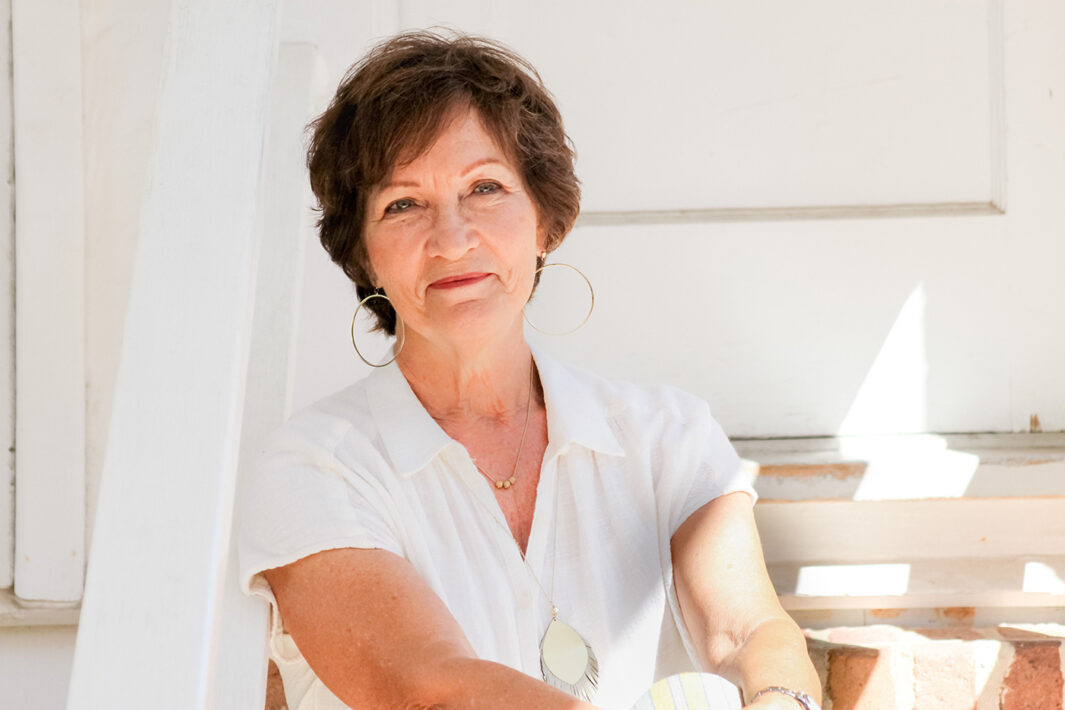
For most of her life, Rhoda Melendez had no idea that her great-grandmother, Frances Ellen Crosley, grew up in an orphanage. “There was a stigma at that time,” Melendez explains. But as her mother, Annie Catrett Williamson, advanced in her years, she felt that it was important for Melendez to know more about her great-grandmother’s past. Williamson shared what little information she knew: that Crosley was raised in the Protestant Orphans’ Asylum located at 911 Dauphin Street in Mobile. Although Williamson had lived with her grandmother her entire life, she never spoke of her childhood. Melendez was intrigued.
The trail began with the history of Mobile. While the Port City’s population was predominantly Catholic at the beginning of the 19th century, the antebellum cotton economy attracted an influx of transplants from the Northeast and other areas of the South, many of whom were of the Protestant faith. At the same time, deadly outbreaks of yellow fever spread throughout the city, leaving many children without one or both of their parents. There was already a Catholic Orphans’ Asylum, which had opened in 1838 on Conti Street. However, many of the wives of prominent Protestant Mobile businessmen saw a need to accommodate the growing number of orphans who were from Baptist, Presbyterian, Episcopal and Methodist families. In 1839, the women formed the Protestant Orphan Society and began the work of raising money and finding an appropriate location to house the children. By 1846, the results of their efforts came to fruition, and the orphanage opened its doors to house up to 40 children, both boys and girls.
Melendez contacted the Historic Mobile Preservation Society to uncover more information about the orphanage, and if possible, her great-grandmother. At first, she was informed that there was no documentation, and Melendez feared she had reached a dead end. However, not too long later, Bob Peck, the chief archivist, did a deep dive and discovered two boxes of records. Originals. Hand-written in difficult-to-read scripts.
Melendez and her mother, who was in her 90s at the time, pored through the box together, deciphering the names of the orphaned children, the supplies ordered and other assorted administrative records. This work, Melendez admits, was tedious at times. Yet, each child’s name felt important, and when Melendez found Frances Ellen Crosley in the record, they knew were on the right track.
While continuing to conduct research in the primary records, Melendez began typing vignettes about a headstrong, quick-witted 11-year-old girl with the thinly veiled name Nell Crosby. Nell winds up in the orphanage after the loss of both of her parents and separation from her brothers. Nell’s determination and humor through difficult times, Melendez says, are traits she remembers about her great-grandmother, with a bit of her own personality thrown in for good measure.
Melendez began telling the stories of Nell’s adventures to her own grandchildren, and with the encouragement of her family, the tales grew into her first novel, “911 Dauphin Street,” historical fiction that appeals to young and adult readers alike.

The whole process, from the initial research to the finished book took nearly four years. Her mother, who has since passed away, lived to see the publication of the novel in August of 2021.
Because the boxes of records contained no description of daily life at the orphanage, Melendez used the little information available and the rendering of the building to piece together a life for Nell. Her imagination filled in the gaps. The dialogue between characters, she explains, came easily to her. She drew on the different dialects she heard growing up in Pike and Crenshaw Counties.

The result is not a bleak and depressing story. The underlying message is one of hope. The children at the orphanage were treated with kindness, and as those painstaking records revealed, were well-fed. The grounds had a garden and a cow that produced milk for the children. Children were allowed to choose their apprenticeships and encouraged to seek paths in life that interested them when it was time to enter the adult world.
“I want my readers to walk away with an understanding of the passion these ladies had to make sure that the children were well cared for,” Melendez explains. The patrons “undertook an enormous feat to build a facility that would later go on to house 80 to 90 children.” The staff competently administered the institution for years.
Melendez adds that since publishing “911 Dauphin Street,” she has had the opportunity to meet several people who grew up in the orphanage, and many share that, for a work of fiction, much of her descriptions of life at the orphanage ring true. One former resident went on to describe her time there as “the best years of her life.”
In 1973, the orphanage closed its doors and the building sat vacant for many years, falling into disrepair. However, in 2015 the property was acquired by the Infant Mystics society and renovated into the meeting and special events space Cotton Hall. The building, like the orphaned children who once inhabited it, proves to be resilient. Despite a devastating fire that consumed much of the interior in October of 2020, the building remains, and is being fully restored and renovated by the Infant Mystics, who are determined to keep this beautiful landmark as a part of Mobile history and to continue to create memories there.

Excerpts from “911 Dauphin Street”
At home, our preacher had a lot to say about Gloryland—the place where happiness and rejoicing goes on day and night by those who’ve reached the mansion built especially for them, and where unspeakable joy is felt at seeing face to face the saints of old, and of course, Jesus our Saviour Himself. But I was never real clear on what else people do after they get there or how much they know of the goings on of the ones they left behind. Do they hear us talking, or know our thoughts? I liked that idea pretty much. But right this minute, as I licked the last bits of syrup off my fingers, I was hoping Mama couldn’t hear from heaven that I was thinking Cooks’ biscuits were every bit as good as hers.
•••
Everybody needs guts at some time or other, if you ask me, and there are all kinds of those. Guts to speak up for yourself when you have to, or to be silent when you’re called on to; guts to fight if you need to, or to not fight if you don’t want to; guts to stick to your guns when you know you’re right, or guts to admit when you’re wrong. Papa always told me I should be careful thinking that way. That there was a fine line between guts and foolishness, and I could get myself in some bad fixes if I crossed that line. Always make sure I was on the right side of it, he said. I had listened to Papa’s advice and was thankful that, so far, it had kept me out of trouble.
Excerpt from 911 Dauphin Street© 2021 by Rhoda Melendez. All rights reserved.
Meet “911 Dauphin Street” author Rhoda Melendez, along with other vendors, at Rooted and Grounded in Mobile on November 12 from 8:30 a.m. – noon.





